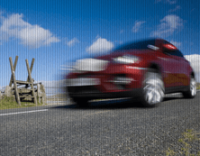The Cringleford Heights Travel Plan is not anti-car; however, we do like to encourage more sustainable travel where possible. Did you know, that on average, Brits have 7,817 singalongs in the car during their lifetime!
With more of us now travelling less due to the pandemic, now is the perfect time to reconsider your travel options and make new habits. These can be as simple as shopping locally or getting your groceries delivered. As we’re getting out and about less, you could try getting out more by going for a walk or a cycle!
We have also created a small guide regarding alternative modes of travel if you are sick of your usual ways of commute or would like to help reduce carbon emissions!
Studies suggest you are 45% more productive after just 29 minutes outside!
By sharing the same or similar journeys with at least one other person, you can save money on the cost of car travel, meet new people and make new friends. Sign up for free with Liftshare to find others travelling to the same places as you.
Enterprise Car Club is a pay-as-you-go service for anyone interested to rent a car or a van by the hour, day, or week. If you are familiar with Beryl bike shares, Enterprise Car Club works similar to this. The cars and vans available to rent are parked across a network of designated bays in Norwich. You can book any cars or vans via their website, mobile app or by phone! It is a great way to save money if you want to avoid spending too much money on buying and maintaining your own car.
Although driving a car can be the least sustainable way to travel sometimes, and arguably detrimental to the environment, it might also be a necessity. Here we have some tips on how to save on fuel, money and air pollution when driving.
♦ Be sure to check your tyre pressure regularly, especially before long journeys as under-inflated tyres will use up more fuel.
♦ Your car will be at its most efficient if it’s being regularly serviced.
♦ Although handy to have when needed, roof-racks and boxes increase your fuel consumption, take them off if they’re not being used to reduce drag and save on fuel.
♦ Lose any unnecessary baggage, extra weight means extra fuel!
♦ Plan ahead and know where you’re going. Getting lost lengthens journeys and also means using up more fuel.
♦ Combine short trips, cold starts use more fuel so it pays to group your errands together when you can.
♦ Start your engine when you’re ready to set off on your journey, an idle engine wastes fuel and your engine will warm up quicker when you’re moving too.
♦ Drive smoothly, accelerate gently and read the road ahead to avoid unnecessary braking.
♦ Stick to the speed limits, the faster you go the greater the fuel consumption.
♦ Cut down on the air-con; it increases fuel consumption at low speeds.
♦ Try to keep your car moving even at slow speeds as stopping then starting again uses more fuel than rolling.
♦ Newer car models (since 2014) have been fitted with gear shift indicators. These encourage you to use the most efficient gear for your speed. Try changing gears at an engine speed of 2,000 rpm for diesel, or 2,500 for petrol.
If you’re thinking about a new car, why not look at a hybrid or electric vehicle? Today’s electric and hybrid cars can drive over 320 kilometres on a single charge and you could save yourself hundreds of pounds compared to petrol or diesel cars. Visit Energy Saving Trust to find a handy ‘home charging calculator’ that can help you to find out how much does it cost to charge an EV at home. Also, there are almost 20,000 public charging point connectors in the UK including rapid chargers.
There are significant benefits to driving electric or hybrid vehicles; they are cheaper to run than combustion engines, potentially saving up to two thirds of the cost on petrol or diesel. They are cheaper to maintain because hundreds of fewer moving parts and associated mechanical problems, and they are better for the environment with no exhaust emissions (EV’s don’t even have an exhaust!).
To find EV charging points throughout the UK visit the handy CarWow or Zap Map websites.
